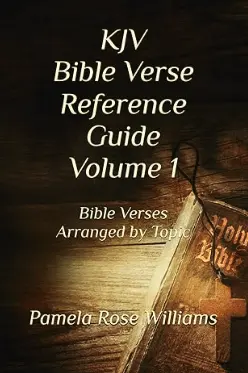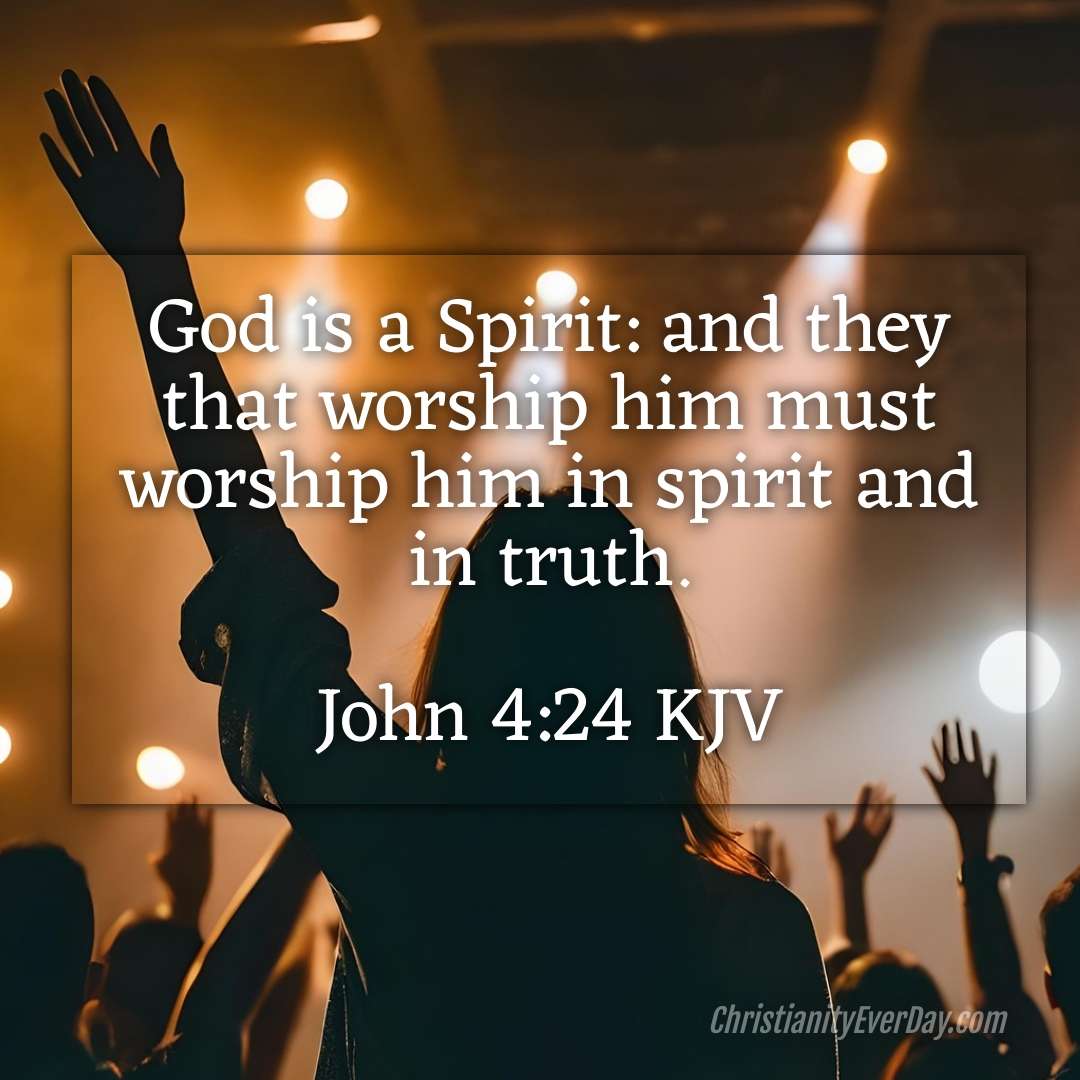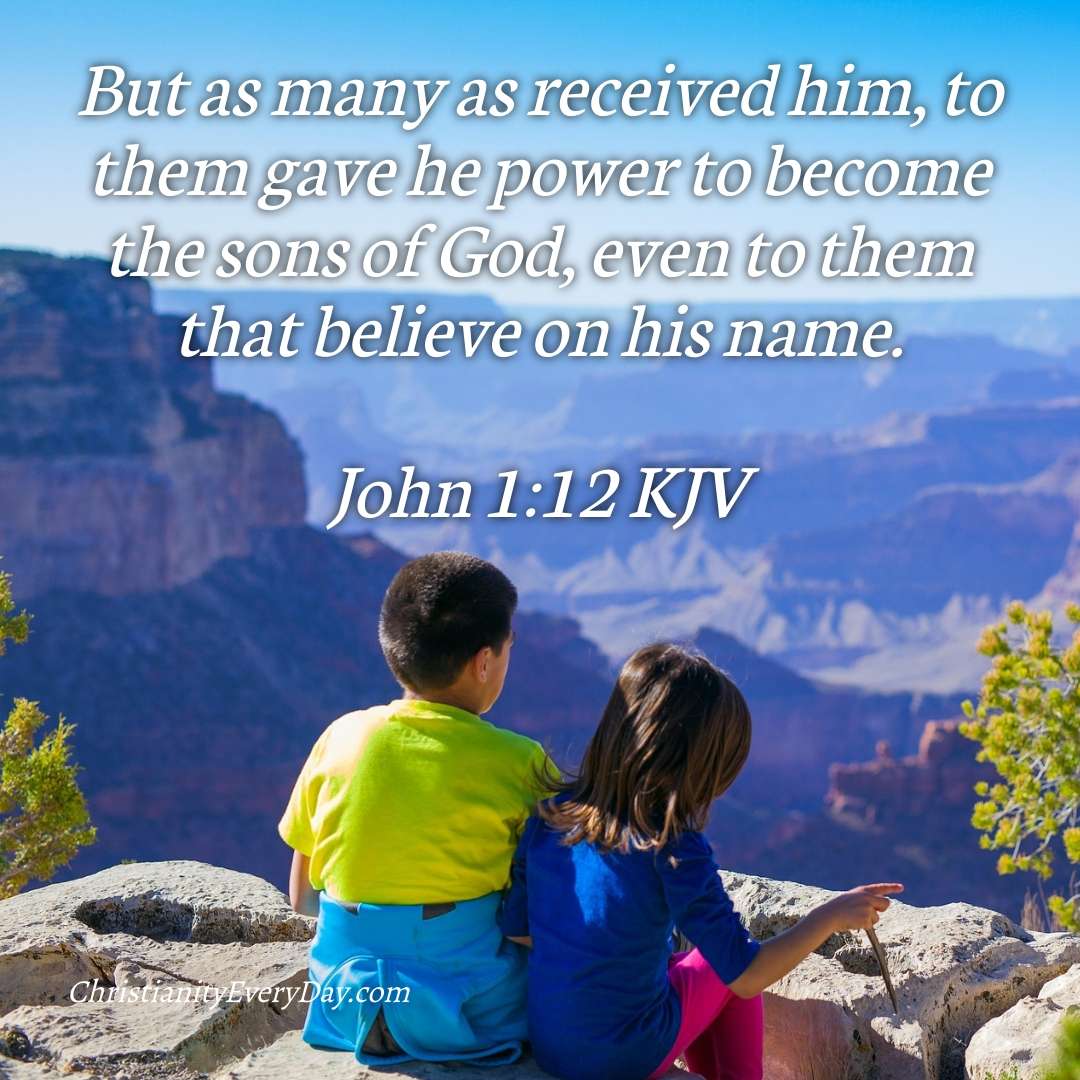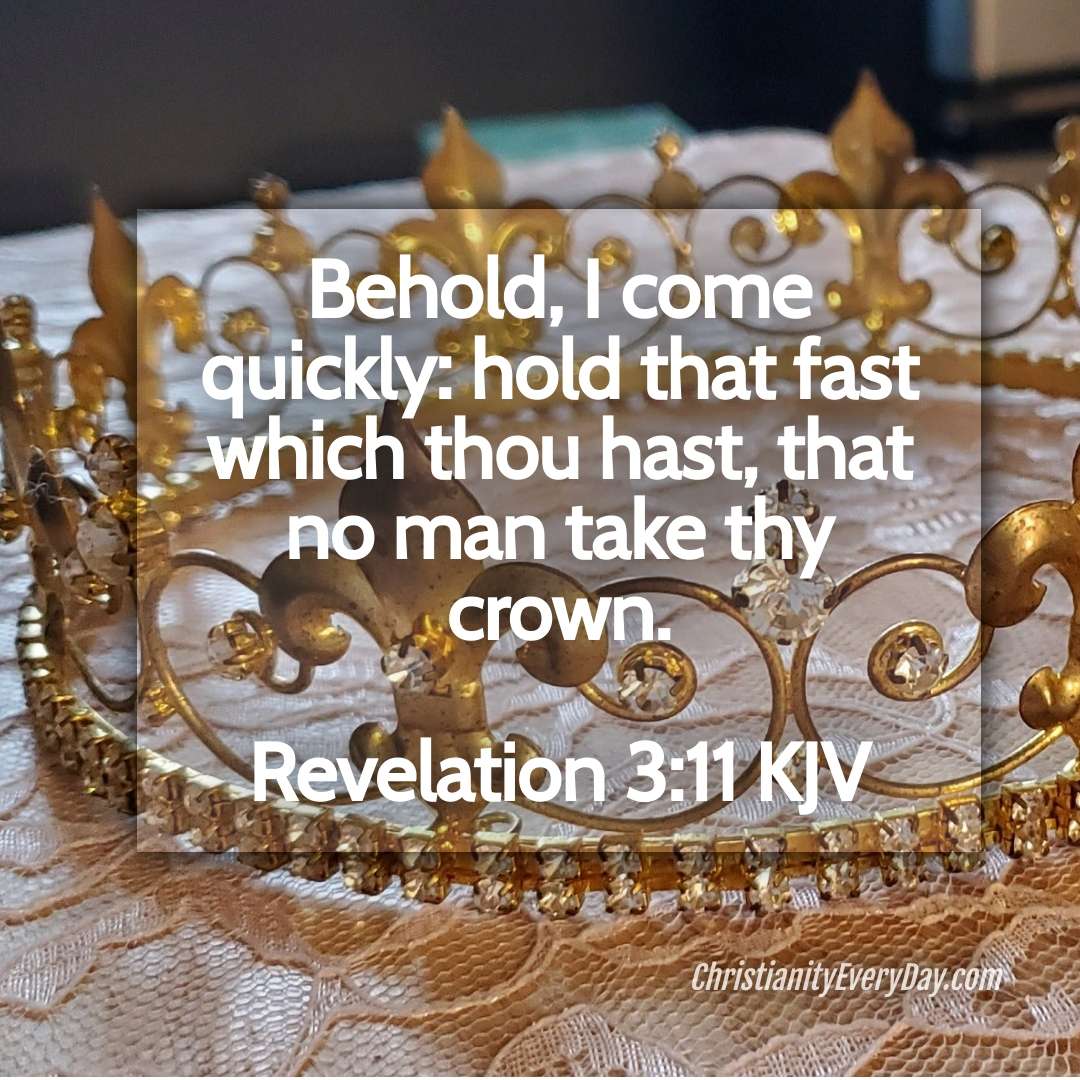Introduction
Many people of faith are familiar with prayer, and they pray in many different ways. But, I wonder, have you ever just talked to God like you would with any other person you know? Is that even possible? Is it right? And how would He talk back to you? Lots of questions, so let’s see what He has to say.
God spoke physical creation into existence
When we look in the Bible, we can see that God has spoken to humanity in many different ways. In the Book of Genesis, we see that God spoke creation into existence. In Genesis 1:3, He said:
“Let there be light” and there was light.”
Over the next three days, God spoke again and created more physical things of heaven and earth.
God spoke living beings into existence
On the fifth day, God spoke again and this time He created creatures that flew in the air and lived in the seas. God spoke to these living creatures and told them in Genesis 1:22:
“Be fruitful and multiply, and fill the waters in the seas, and let the fowl multiply in the earth.”
Then, on the sixth day, God spoke again and this time He created man, saying in Genesis 1:26:
“Let us make man in our image, after our likeness: and let them have dominion over the fish of the sea, and over the fowl of the air, and over the cattle, and over all the earth, and over every creeping thing that creepeth upon the earth.”
God spoke to more than just Himself
It is interesting to note that when God said this, He spoke to more than just Himself when he said, “Let us make man in our image, after our likeness: and let them have…”
The use of the words “us” and “our” indicates God did not mean just Himself. Without getting too deep, He used these plural Words to include three manifestations of Himself as God the Father; God the Son (Jesus); and God the Spirit (Holy Spirit). We commonly refer to these three manifestations of God as the Holy Trinity. To read more about this Trinity check out the Trinity article series: What Does the Bible Say About the Trinity – Article Series
We also see God referred to man with the plural term, “them.” We see in verse 27 that He created man in His own image and created them as male and female, whom we later read that they were Adam, and then his wife Eve. God goes on to say in Genesis 1:28, “And God blessed them, and God said unto them, Be fruitful, and multiply, and replenish the earth, and subdue it: and have dominion over the fish of the sea, and over the fowl of the air, and over every living thing that moveth upon the earth.” God gave them other instructions in Genesis 1:28-29 concerning food.
God spoke face-to-face with man
Moving on, we see in Genesis 2 and Genesis 3 where God spoke face-to-face with Adam and Eve. These discussions were about the Garden of Eden, God’s expectations, commands, and personal interactions. These conversations were good in some cases and not so good in other cases. The not so good cases were because of Adam and Eve’s sin of not doing what God told them, but instead, doing what Satan told them.
Sadly, this ended God’s last face-to-face conversation with Satan, Eve, and Adam. He rebuked them for what they had done, told them what the consequences would be, and expelled them from the Garden. God said to Satan that because of what he had done he would be cursed and this foretold of a Redeemer that would one day be born as a descendant of Eve. And this would set things right as we read in Genesis 3:14-15:
“And the LORD God said unto the serpent, Because thou hast done this, thou art cursed above all cattle, and above every beast of the field; upon thy belly shalt thou go, and dust shalt thou eat all the days of thy life: And I will put enmity between thee and the woman, and between thy seed and her seed; it shall bruise thy head, and thou shalt bruise his heel.”
Finally, God spoke to the Others of the Trinity and said He was expelling Adam and Eve from the Garden and would keep them out to keep them from eating of the Tree of Life in Genesis 3:22-24:
“And the LORD God said, Behold, the man is become as one of us, to know good and evil: and now, lest he put forth his hand, and take also of the tree of life, and eat, and live for ever: Therefore the LORD God sent him forth from the garden of Eden, to till the ground from whence he was taken. So, he drove out the man; and he placed at the east of the garden of Eden Cherubims, and a flaming sword which turned every way, to keep the way of the tree of life.”
God spoke with man indirectly
When Adam and Eve were expelled from the Garden, they no longer had the same kind of face-to-face access that they did in the Garden, but there were still discussions. In Genesis 4, Adam and Eve started having children, Cain and Abel. We also see that Cain raised crops and Abel kept sheep and they both brought sacrifices to the Lord, but only the living sacrifices were pleasing to the Lord.
Cain’s sacrifices were not accepted, and he got disrespectful with God over it, so God spoke with Him and warned him not to let sin influence his behaviors. However, Cain did not listen and killed his brother Abel, whose sacrifices were acceptable. God confronted Cain and Cain lied about what happened so God rebuked Cain with the truth and cursed him to be expelled as a fugitive and vagabond, or “fleeing” and “wandering” criminal and would no longer be blessed with crops. Despite this curse, God marked Cain so that no one would kill him (Genesis 4:1-15).
Most of mankind rejects talking to God
If we examine the lineage of Cain from this point and the lineage of the next brother to be born, Seth, we find something interesting about their descendants. Cain’s descendants rejected God, practiced polygamy, committed murder, exalted themselves, and sought revenge for what was done to Cain and themselves (Genesis 4:16-24).
Seth’s descendants continued to glorify God, served Him, and walked with Him (Genesis 5). By the 10th generation, Noah was born and having been raised walking with God, God spoke to him about building an ark to rescue him and his family, eight total, from the destruction of the earth by a flood.
It can be noted that all of Seth’s descendants before Noah lived long lives and eventually died, except for Enoch, whom God took directly to heaven (Genesis 5:19-24), before the flood of Genesis 6. However, we can also see that all of Cain’s descendants died before or during the flood.
God provides other ways to speak with Him
So far, we have seen where God communicated face-to-face, and after the expulsion from the Garden of Eden, He communicated in other indirect ways, verbally, with prayers, with miracles, through prophets, Old Testament Scriptures, and other stated events. As man progressed through the Old Testament, we see these verbal, prayerful, miraculous, and prophetic events as the usual way man spoke with God. As we reach the end of the Old Testament, we find there was a period of silence just before the events leading up to the birth of Jesus Christ.
God enables us to speak to Him through Christ
With the birth of Christ, communicating with God went beyond what had been done and a new channel of communication was born through Jesus Christ. In John 1:1 we read:
“In the beginning was the Word, and the Word was with God, and the Word was God. The same was in the beginning with God. All things were made by him; and without him was not any thing made that was made. In him was life; and the life was the light of men. And the light shineth in darkness; and the darkness comprehended it not.”
In John 1:14 we read:
“And the Word was made flesh, and dwelt among us, (and we beheld his glory, the glory as of the only begotten of the Father,) full of grace and truth.”
We see here that in this chapter we learn that Jesus Christ is the Word of God and a new method of communicating with God was literally born. From this point, we see that while there were prophets, such as John the Baptist, described in John 1; later the Apostles; and other visionary and miraculous communications; the usual method of communications with God was changing. This change was set in place by the establishment of the New Testament church. Jesus explained this when talking to the Apostles about who people thought He was. Peter said that Jesus was the Christ, the Son of the living God in Matthew 16:16-19:
“And Simon Peter answered and said, Thou art the Christ, the Son of the living God. 17 And Jesus answered and said unto him, Blessed art thou, Simon Bar-jona: for flesh and blood hath not revealed it unto thee, but my Father which is in heaven. And I say also unto thee, That thou art Peter, and upon this rock I will build my church; and the gates of hell shall not prevail against it. And I will give unto thee the keys of the kingdom of heaven: and whatsoever thou shalt bind on earth shall be bound in heaven: and whatsoever thou shalt loose on earth shall be loosed in heaven.”
God speaks to us through His Word
From here we see that God communicated through the Apostles and others as the New Testament began to be written. There continued to be a sacrificial system, but that officially ended when Jesus was crucified. There were also sign gifts that were provided to unbelievers to include speaking in tongues, which were known languages. These sign gifts were destined to cease with the completion of the New Testament in 96 AD when the Apostle John finished writing the Book of Revelation. This completion of the New Testament was described as “that which is perfect is come”, which also resulted in the end of the sign gifts in 1 Corinthians 13:8-12:
“Charity never faileth: but whether there be prophecies, they shall fail; whether there be tongues, they shall cease; whether there be knowledge, it shall vanish away. For we know in part, and we prophesy in part. But when that which is perfect is come, then that which is in part shall be done away. When I was a child, I spake as a child, I understood as a child, I thought as a child: but when I became a man, I put away childish things. For now we see through a glass, darkly; but then face to face: now I know in part; but then shall I know even as also I am known.”
This is further described in 2 Corinthians 3, which talks about the “Epistle” written in our hearts by the Holy Spirit and enables us as ministers of the New Testament. We see the connection between 1 Corinthians 13:12 (above) and 2 Corinthians 3:18 with the mention of looking through a dark glass:
“For now we see through a glass, darkly; but then face to face: now I know in part; but then shall I know even as also I am known.” (1 Corinthians 13:12)
“But we all, with open face beholding as in a glass the glory of the Lord, are changed into the same image from glory to glory, even as by the Spirit of the Lord.” (2 Corinthians 3:18)
This “dark glass” is referred to as the Word of God. We see this glass mentioned as a mirror, illustrating how we can look into the Word of God, and see a reflection of who we really are in James 1:21-25:
“Wherefore lay apart all filthiness and superfluity of naughtiness, and receive with meekness the engrafted word, which is able to save your souls. But be ye doers of the word, and not hearers only, deceiving your own selves. For if any be a hearer of the word, and not a doer, he is like unto a man beholding his natural face in a glass: For he beholdeth himself, and goeth his way, and straightway forgetteth what manner of man he was. But whoso looketh into the perfect law of liberty, and continueth therein, he being not a forgetful hearer, but a doer of the work, this man shall be blessed in his deed.”
This reference to the Word of God is teaching us that the Word of God speaks to us and should be used to examine ourselves, like a mirror, and take action to do something about what we see that is not right. Overall, we see these references, written from about 45-60 AD speaking of the New Testament, which was not yet completed and would not be completed until 96 AD. That is why it is referred to as a dark glass and with time it gets easier to see as the New Testament was completed.
God speaks to us through the Holy Spirit
As we just saw, we were told to receive the “engrafted Word” in James 1:21:
“Wherefore lay apart all filthiness and superfluity of naughtiness, and receive with meekness the engrafted word, which is able to save your souls.”
This engrafted Word, is how God talks to us and discerns our thoughts and intents of our hearts as seen in Hebrews 4:12:
“For the word of God is quick, and powerful, and sharper than any twoedged sword, piercing even to the dividing asunder of soul and spirit, and of the joints and marrow, and is a discerner of the thoughts and intents of the heart.”
As we study the word of God and use it as a mirror to examine ourselves, the Holy Spirit speaks to us about what we are doing and thinking. Most often this is done in the way of a “voice” that brings Bible verses to mind that apply to our situations. Jesus mentioned this voice in John 10:27:
“My sheep hear my voice, and I know them, and they follow me: And I give unto them eternal life; and they shall never perish, neither shall any man pluck them out of my hand.”
How can we talk to God today?
So, where does all this lead us when it comes to talking to God? First, if we have trusted Christ as our Savior, we know that the Holy Spirit lives in us. It is through the Holy Spirit that we have an open line of communication to God. We know the following about the Holy Spirit:
- The Holy Spirit is given to us by God the moment we trust Christ as our Savior. (Ephesians 1:9-14)
- The Holy Spirit gives us the power to talk with God and others in a manner that is holy. (Ephesians 4:17-32)
- The Holy Spirit gives us wisdom and understanding (Isaiah 11:2)
- The Holy Spirit gives us comfort as the “Comforter” (John 14:16, 26; 15:26)
- The Holy Spirit helps us remember everything God teaches through His Word (John 14:16, 26)
- To read more about the Holy Spirit, check out the article: Who is the Holy Spirit?
When it comes to talking to God, remember that God is manifest in the Holy Trinity of three persons, the Father, the Son, and the Holy Spirit. Therefore, if we have trusted Christ, we are sealed until the day of redemption, which is the day we stand before Christ in Heaven and are perfected. Therefore, we should consider how we talk to God and others since He is literally in us, listening to every word as seen in Ephesians 4:29-32:
“Let no corrupt communication proceed out of your mouth, but that which is good to the use of edifying, that it may minister grace unto the hearers. And grieve not the holy Spirit of God, whereby ye are sealed unto the day of redemption. Let all bitterness, and wrath, and anger, and clamour, and evil speaking, be put away from you, with all malice: And be ye kind one to another, tenderhearted, forgiving one another, even as God for Christ’s sake hath forgiven you.”
We can also be assured that God will never leave us nor forsake us and we can rely on God as our helper as seen in Hebrews 13:5-6:
“Let your conversation be without covetousness; and be content with such things as ye have: for he hath said, I will never leave thee, nor forsake thee. So that we may boldly say, The Lord is my helper, and I will not fear what man shall do unto me.”
Finally, knowing that God is with us at all times consider this: Imagine if we had a close friend that hung out with us all the time. This friend saw and heard every conversation we had, knew what we were thinking, and understood everything about us that there is to know.
Now imagine never talking to this friend despite them being with us all day as we live our lives. Worse yet, imagine what our friend would think if they said things to us and we never said anything back to them. They would be pretty upset; they would be grieved since they love us. This is what happens when we spend the whole day not talking to God, Who is here with us all the time.
What should we say to God?
We should talk to God throughout the day. This does not mean we must use King James Old English to talk to Him. We don’t have to go to a church or a special place. We should talk to Him like a loving friend that wants to help us. As we do this, He will bring Bible verses and ideas to mind that speak to what we are thinking, saying, and experiencing. When that happens, it is the most awesome thing to experience and our faith and trust in Him grows as well as our joy. This external display of joy inspires others to want to know why we are so happy and provides us the perfect opportunity to share the love of Christ with them.
Final Thoughts
We have learned a lot about talking to God. Personally, I remember the first time years ago when I saw the Movie, Fiddler on the Roof. In the movie, the father, Tevye, the main character, was always looking up at the sky and talking to God about things he was dealing with. At first, I thought it was funny. However, after being saved and growing in the Lord over the years, I saw it as something that was actually pretty awesome. It is awesome because we can talk to God without looking up at the sky because He is with us! It has become my favorite movie, and I encourage you to watch it. You never know, you might even sing a few songs to express your heart to the Lord.
You may purchase Fiddler on the Roof from our affiliate link by clicking on the image to the left.

Dr. Michael L. Williams, Head of Ministry Operations and Technology at Christianity Every Day, is a Christ-centered Author, Educator, Biblical Counselor and Advisor. He is ordained in Pastoral Ministry and formerly the founding Pastor of Selah Mountain Ministries, a church started along with his wife, Pamela Rose, after several years of pastoral experience and training in Biblical Counseling. Selah Mountain provided Biblical counseling and education to the public on how to overcome life issues Biblically on topics such as anger management, marriage, addictions, and other subjects – often referred to as mental illnesses. To learn more about Dr. Mike visit the About page.


































































